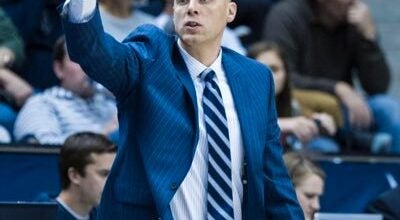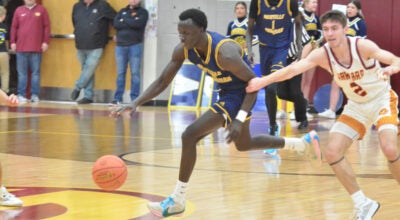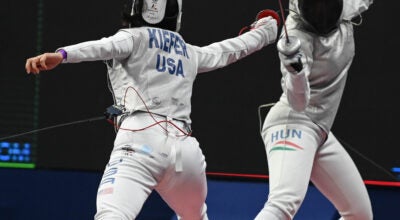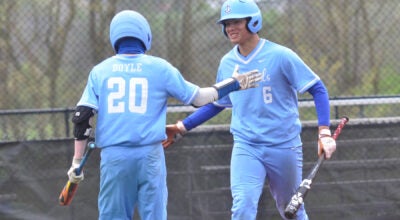Louisville’s problems won’t go away
Published 5:24 pm Thursday, July 14, 2022
RUSS BROWN
Kentucky Today
It seems as if the University of Louisville troubles stemming from its athletics department just won’t go away.
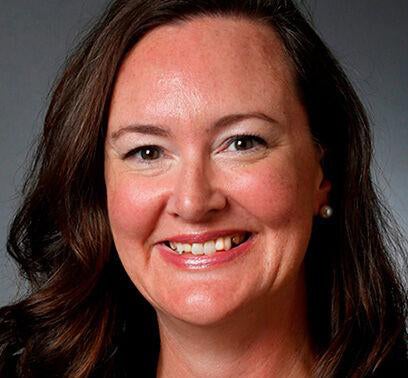
Amy Shoemaker
Since the hiring of Kenny Payne as the Cardinals’ new men’s basketball coach, UofL has been riding a wave of renewed enthusiasm, favorable media coverage and thoughts of future success.
Amy Shoemaker has filed a whisteblower’s suit against the University of Louisville.
But now comes an unexpected development that promises to bring the Chris Mack-Dino Gaudio blowup back to the forefront, cause more national embarrassment and potentially who knows what other revelations.
In a lawsuit filed Friday in Jefferson Circuit Court, former UofL deputy general counsel and associate athletic director Amy Shoemaker claims she was demoted and shut out in 2021 by then-UofL president Neeli Bendapudi after telling police about an extortion attempt against Mack by Gaudio, then an assistant basketball coach, on March 17, 2021.
Shoemaker left the university earlier this year and is now general counsel at Miami University of Ohio.
In her lawsuit Shoemaker alleges Bendapudi and the school retaliated against her when she alerted campus police to what she believed to be illegal actions by Guadio, who later pled guilty to a federal charge of attempted extortion and was sentenced to a year of probation and a $10,000 fine last August.
Shoemaker claims Bendepudi’s anger resulted in her being “frozen out,” relieved of some of her responsibilities and subjected to a salary cut. Shoemaker was hired at UofL in 2006 as assistant general counsel and was promoted to deputy general counsel and associate AD in 2018.
Shoemaker’s complaint says she was berated by Bendapudi for reporting the extortion attempt to law enforcement and quotes the former president as telling her, “Amy! You cannot trust the FBI!” while describing the agency as “tricky.” Shoemaker said Bendapudi “expressed frustration and anger” that the police had been contacted, and expressed worry about negative publicity.”
Shoemaker said that Wade Smith, Bendapudi’s chief of staff, told her she had exceeded her authority and that decisions on what crimes to report were the responsibility of the president.
Bendapudi, now president of Penn State University, issued a statement through the school, but it didn’t directly address the specific allegations in the lawsuit.
“My commitment to ethical conduct and treating people the right way has been unwavering throughout my career,” Bendapudi said. “The teams I have built at multiple institutions reflect these bedrock values. I have and will continue to lead with integrity and have complete confidence in Dr. Michael Wade Smith, who emulates these principals as well.”
According to Shoemaker’s complaint, Mack notified Josh Heird, who was then associate AD but since has been named to the top spot permanently, of his plans not to renew Gaudio’s or Luke Murray’s contract. Heird went to Shoemaker to seek advice on that process was was told that Mack needed to have another UofL employee present for the conversation.
Instead, Mack held the meeting with Gaudio on his own. It became combative and Gaudio threatened to explose alleged NCAA violations within the program if he wasn’t paid the equivalent of 18 months’ salary. Mack secretly recorded the conversation and a subsequent voice mail from Gaudio saying he would be back the next day to close the deal in writing.
Mack then reported what had happened to Heird and Shoemaker, who later that day met with then-AD Vince Tyra and compliance director John Carns, and all of them listened to the recording. According to the suit, Shoemaker felt it was her duty to report Gaudio’s threats to campus police, who she provided with copies of the recordings by Mack.
“Amy Shoemaker knew immediately when Chris Mack came to her with the recording that what Dino Gaudio had done was illegal, that she had to report it,” Shoemaker’s attorney, Hal Poppe, said. Poppe added that her decision to sue UofL was a difficult one, but they had tried without success to resolve the matter without litigation.
“They were unwilling to do anything that would amount to an appreciation for the significance of what had occurred here,” Poppe said. “We reached out to the university and they kept wanting additional information and we provided them with what they wanted. They came back with what can only be described as a nominal response that was insulting to say the least. It was so small as to be laughable.”
But this is obviously no laughing matter and now UofL may be facing another round of what Bendapudi accurately described as “negative publicity.”



